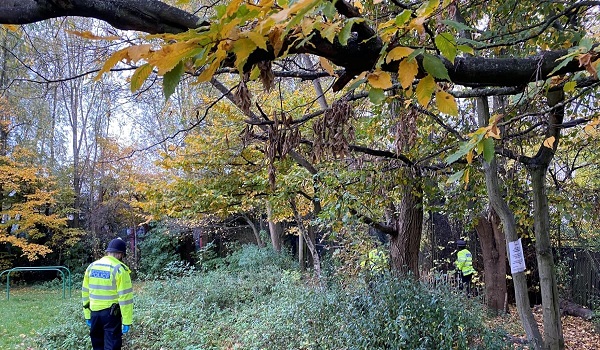One in four retailers sells knives to children, survey reveals
Tougher punitive measures have been demanded as underage knife penalties fail to deter retailers from making potentially illegal sales.
High street retailers sold knives to one in four teenage mystery shoppers last year without proof of age being requested, new research data reveals.
In more than 2,350 knife sale test visits undertaken by independent retail age check company Serve Legal across the UK last year, 26 per cent of sales went unchallenged.
Pass rates are little better than ten years ago despite rising test volumes, a new voluntary agreement signed between prominent retailers and the Government, and amid mounting concerns about a spike in gun and blade crime.
The latest data published by the Office for National Statistics showed 39,598 offences involving a knife or sharp instrument were recorded in 2017, up more than a fifth compared with the previous year and the highest number registered since comparable records started in 2010.
Selling a knife, blade or axe to under 18s is illegal in England, Wales and Northern Ireland while in Scotland young people aged 16 to 18 can buy kitchen cutlery.
The research showed homeware and DIY stores were the worst high-street culprits, selling knives to four in ten – 41 per cent – young mystery shoppers without requesting age identification.
Supermarkets fared better but still failed one in five – 21 per cent – age check tests.
London had the UK’s highest pass rate at 82 per cent – a likely outcome of Operation Sceptre, the Metropolitan Police Service’s anti knife crime programme.
But retailer commitment to testing fell by five per cent to 232 tests in 2017 from 245 in 2016. Scotland and Northern Ireland had the UK’s lowest knife test pass rates at 59 per cent each.
Retailers have increased their commitment to age check testing for knife sales in the last ten years with Serve Legal undertaking 2,357 knife sale tests in 2017 compared with 1,003 tests in 2009), but staff performance has failed to keep step.
Test pass rates decreased by one percentage point in 2017 compared to 2016 (75 per cent) and were only one percentage point higher than nine years ago when Serve Legal’s test programmes began – at 74 per cent in 2017 compared to 73 per cent in 2009.
Alcohol sale test pass rates, by comparison, have been 80 per cent and over for the last five years, with nearly 20 times as many tests undertaken by Serve Legal on behalf of high street retailers as knife sale tests – 49,067 alcohol sale tests in 2017 against 2,357 knife sale tests.
Serve Legal director Ed Heaver said: “Against a backdrop of rising knife crime, news headlines about school-age victims and perpetrators are shockingly frequent.
“Our latest retail test data reveals that despite the principles of the government’s voluntary agreement on underage sales, which many retailers have agreed to adhere to, complacency on the high street could well be contributing to a deadly societal problem, with knives being sold to young people in plain sight.
“The fact that so many high street retailers and their staff are prepared to take the risk of putting deadly weapons into the hands of young people is proof that the threat of a fine and six months’ imprisonment if convicted is not a punitive deterrent.
“A review of penalties for underage knife sales is well overdue and should be part of the Home Office’s new Serious Violence Strategy, with tougher penalties for any retailer not able to demonstrate the requisite due diligence if they fail a local authority or police knife test.”
Online retailers came under scrutiny too. In 1,600 online test sales of age-restricted goods – including knives – last year, 59 per cent of Serve Legal’s mystery shoppers were handed products on the doorstep unchallenged.
The test purchase pass rate for online retailers has been falling since 2014 and their commitment to testing is extremely low.
Mr Heaver added: “We are the only organisation operating at scale in the UK to audit online retailers’ performance around age-checks, both at the point of purchase online and at the point of delivery.
“Our data presents a worrying picture with no progress on pass rates in recent years.
“It isn’t enough for online retailers to have age identification checks on their websites – responsible behaviour should be guaranteed throughout the sale and delivery process.”
The Home Secretary’s new Offensive Weapons Bill brings forward plans to ban home deliveries for knives bought online.
Under the new legislation, customers will have to collect their purchase from a designated collection point.
Details of how this will work in practice and how age checks will be enforced, however, are yet to be announced.







